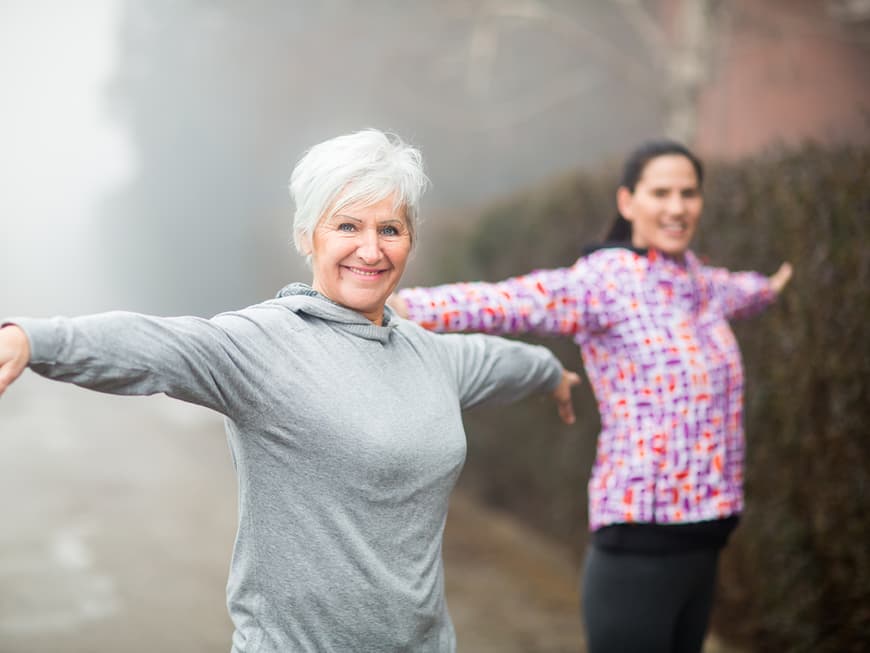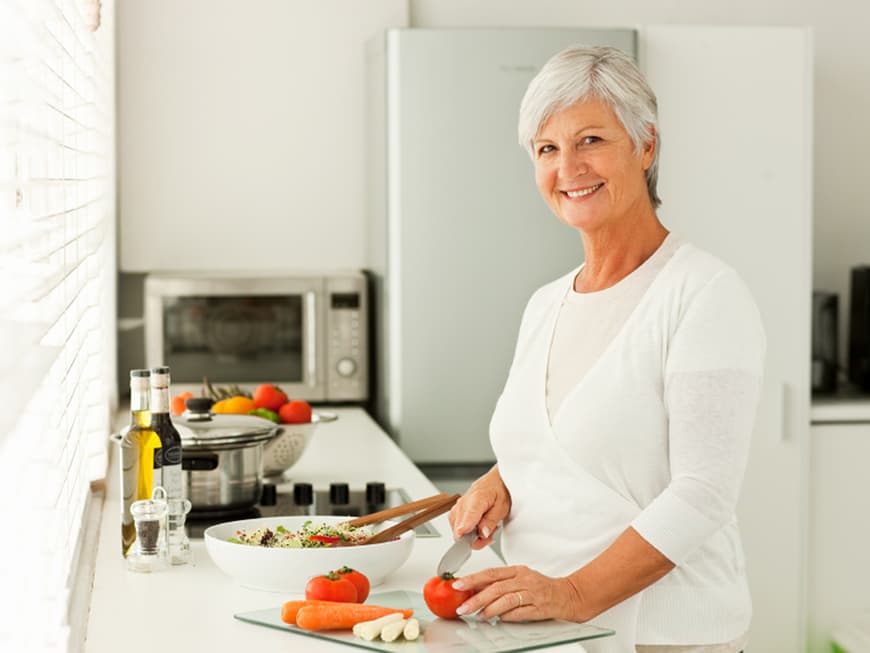Self-help for cancer: What can I do for myself?
Around 500,000 people are diagnosed with cancer every year. This is followed by numerous mental and physical struggles and challenging therapies. However, those affected can also do something good for their own wellbeing: for many people, self-help strategies for cancer are a helpful addition to traditional therapies. Find out more here!
Self-help for cancer: exercise is good for you
Sport during cancer treatment? A self-help tip that may initially elicit irritated looks is now a recognized component of therapy. Physical activity is by no means intended to defeat the cancer itself. However, it can alleviate the side effects of chemotherapy, for example, improve patients' physical fitness and be beneficial for the psyche. Accordingly, offers such as yoga for cancer are flourishing.
However, sport is not only the ideal self-help during treatment. Exercise has an influence on the development of cancer and also on the risk of relapse in patients who have had cancer.
How does sport help with cancer?
Anyone who does sport as self-care for cancer should pay attention to one thing above all: moderate but regular exercise. This is because the effect is directly related to the amount of exercise. But be careful not to overexert yourself. Overworking is counterproductive.
Regular exercise is only possible if you enjoy doing sport. Those affected should therefore choose a sport that they enjoy. This makes it easier to stay on the ball. A balanced, healthy diet also has a positive effect on fitness. Stick to the following key data to develop a healthy training plan:
- Exercise three times a week for around 60 minutes.
- If you cannot manage sessions of this length, you can also spread them out over 5 to 6 times a week, each lasting 15 to 30 minutes.2
This amount of exercise is perfectly adequate for self-help with cancer.
Which sports are suitable for self-help with cancer?
For cancer self-help, find a sport that you like and can do regularly. A combination of strength and endurance training is best. You can go cycling, jogging or walking, but also go to soccer, a workout or classic strength training - depending on your state of health and available stamina. Everyday life can also become a training session, such as gardening, dusting or window cleaning.
Patients who lose muscle mass during cancer treatment particularly benefit from light weight training as a form of self-help. This allows them to rebuild muscle and prevent further loss.
Training with a focus on mobility and coordination also challenges the areas of the body that are somewhat neglected by traditional strength and endurance training and also involves a very low risk of injury.
By the way: If you get out of breath while exercising, but could still talk to someone if in doubt, you have found a good level of exertion for your current fitness. This rule of thumb makes self-help exercise for cancer easier, especially for beginners.
However, as a general rule, before you start exercising, ask your doctor for advice on what is suitable for you personally. In some cases, a medical check-up is also useful to assess your physical fitness.
Talking to help yourself with cancer
For many people affected by cancer, it is important to know that they are not alone with their problems and that someone is listening to them. Self-help for cancer also means support for the soul. This is exactly what self-help groups and advice centers provide.
Self-help groups for cancer
How do I deal with my illness? What do I need to know about my type of cancer? These and similar questions are typical topics for cancer self-help groups. As a rule, certain types of cancer are the subject of such a group, as each type has its own particularities and special challenges. For example, there are groups for breast cancer, bladder cancer or skin cancer.
In addition to factual information and practical experience, for example on doctors or forms of therapy, such a group primarily offers a support network for patients. They experience compassion, understanding and the feeling that they are not on their own. This self-care often includes joint activities for cancer patients, which also improve their quality of life.
Advice centers for self-help with cancer
Cancer brings with it many unanswered questions and fears for those affected. However, they often don't know who to turn to at first. If patients are looking for self-help options for their cancer, advice centers are the best place to go.
In addition to lists of doctors and specialist information on therapeutic options, these centers also provide recommendations for suitable self-help groups. The staff at the advice centers have a very good overview. Have you decided to join a self-help group for cancer? Then the advice centers can help you with a targeted search.
Sources:
"Cancer statistics: This is how common cancer is in Germany." Cancer Information Service, German Cancer Research Center, Cancer Information Service, https://www.krebsinformationsdienst.de/tumorarten/grundlagen/krebsstatistiken.php. Accessed July 10, 2023.
"Sport in Cancer: As Important as a Drug." Krebsgesellschaft.de, https://www.krebsgesellschaft.de/onko-internetportal/basis-informationen-krebs/basis-informationen-krebs-allgemeine-informationen/sport-bei-krebs-so-wichtig-wie-.html. Accessed July 10, 2023.









